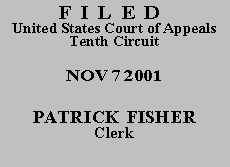

| UNITED STATES OF AMERICA,
Plaintiff-Appellee, v. EDUARDO GARCIA-GONZALES, also known as Eduardo Garcia, also known as Eduardo Garcia Gonzalez, Defendant-Appellant. |
|
On August 16, 2000, a federal grand jury indicted defendant Eduardo Garcia-Gonzales on a charge of possession with intent to distribute more than 500 grams of methamphetamine in violation of 18 U.S.C. § 841(a)(1). On October 31, 2000, he entered into a plea agreement with the government which specified a maximum statutory penalty of life imprisonment or a fine of $4,000,000.00, or both, a mandatory special assessment of $100.00, and a term of supervised release of not less than five years.
In his petition to enter a guilty plea, Mr. Garcia-Gonzales indicated his understanding, through counsel, that a plea in this case could lead to his surrender of a number of constitutional rights. Under the section titled "Waiver of Right to Appeal and Bring Collateral Challenge," the plea agreement stated that in exchange for certain concessions made by the United States, Garcia-Gonzales
knowingly and voluntarily waives his right to appeal or collaterally challenge: (a) . . . any issue or challenge before the district court concerning the circumstances leading up to his arrest on July 18, 2000, and agrees not to file any motions to suppress addressing the car stop or the subsequent search of his vehicle [or] (b) . . . [his] sentence . . . , provided the sentence is within or below the applicable guideline range.
R., Vol. 1, Doc. 21, at 4.(1)
At his plea hearing before the district court on February 12, 2001, the following colloquy took place:
THE COURT: Do you understand, Mr. Gonzalez [sic], that by agreeing to enter a plea of guilty, pursuant to this plea agreement, you're waiving your right to appeal?
THE DEFENDANT: Yes.
THE COURT: And have you discussed that with your attorney?
THE DEFENDANT: Yes.
THE COURT: And you understand that?
THE DEFENDANT: Yes.
Aplee. Supp. App. at 47.
After reviewing the pre-sentence report, and over several of the defendant's sentencing objections, the district court imposed a sentence of 235 months, a five-year term of supervised release and a special assessment of $100.00. Mr. Garcia-Gonzales now appeals.
In a response to the government's motion to dismiss this appeal based on the issue of waiver, Mr. Garcia-Gonzales's counsel has filed a brief pursuant to Anders v. California, 386 U.S. 738 (1967), and has moved for leave to withdraw.(2) That brief does not point us to anything in the record arguably supportive of Mr. Garcia-Gonzales's appeal. Mr. Garcia-Gonzales has filed a response in which he argues only that the government's indictment "failed to invoke federal jurisdiction" by "fail[ing] to include any mention or designation" of the Commerce Clause of the United States Constitution or the effect on interstate commerce of the illegal activity in any of the charging documents. Aplt. Closing Br. at 2. For the reasons set out below, we grant counsel's motion to withdraw and dismiss the appeal.
We have held many times that, subject to certain public policy constraints, "'[a] defendant's knowing and voluntary waiver of the statutory right to appeal his sentence is generally enforceable.'" United States v. Black, 201 F.3d 1296, 1300 (10th Cir. 2000) (quoting United States v. Atterberry, 144 F.3d 1299, 1300 (10th Cir. 1998)) (further quotation omitted). To the extent Mr. Garcia-Gonzales now argues that he waived his right to appeal either involuntarily or without knowledge, a question we review de novo, we must disagree. Nothing in the record indicates that Mr. Garcia-Gonzales's decision to enter into the plea was other than knowing and voluntary. He was informed on a number of occasions of the maximum statutory penalties and other potentially negative ramifications of his plea, in addition to those parts of the bargain which would benefit him by avoiding trial. Knowing these things, Mr. Garcia-Gonzales accepted the conditions of the agreement, including its waiver of appellate review.
In addition to the record, we have read defendant's briefs on appeal and we find nothing that persuades us to change our view that Mr. Garcia-Gonzales was fully aware of the charges against him. Moreover, we find nothing in his briefs or the record to convince us to strike the plea agreement and waiver of appeal in the interest of public policy. To the extent that Mr. Garcia-Gonzales's arguments raise issues concerning the jurisdiction of the federal courts to hear his case under the drug trafficking laws in Title 21, we find these arguments to be without merit and the appeal, on the whole, to be frivolous.
Therefore, the United States' motion to dismiss is GRANTED. The appeal is DISMISSED. Counsel's motion to withdraw is GRANTED.
Entered for the Court
Circuit Judge
*. This order and judgment is not binding precedent, except under the doctrines of law of the case, res judicata, and collateral estoppel. The court generally disfavors the citation of orders and judgments; nevertheless, an order and judgment may be cited under the terms and conditions of 10th Cir. R. 36.3.
1. The agreement specifically noted Mr. Garcia-Gonzales's refusal to waive his right to appeal an upward departure of the sentencing guidelines or retroactive application of changes in the law of this circuit or the U.S. Supreme Court.
2. Anders holds that if counsel finds a case to be wholly frivolous after conscientious examination, he may so advise the court and request permission to withdraw. Anders, 386 U.S. at 744. Counsel must also submit to the court a brief referring to anything in the record arguably supportive of the appeal. The brief is then served upon the client, who may then raise any point he chooses, and this court thereafter undertakes a complete examination of all proceedings and decides whether the appeal is, in fact, frivolous. If it so finds, it may grant counsel's request to withdraw and dismiss the appeal. Id.